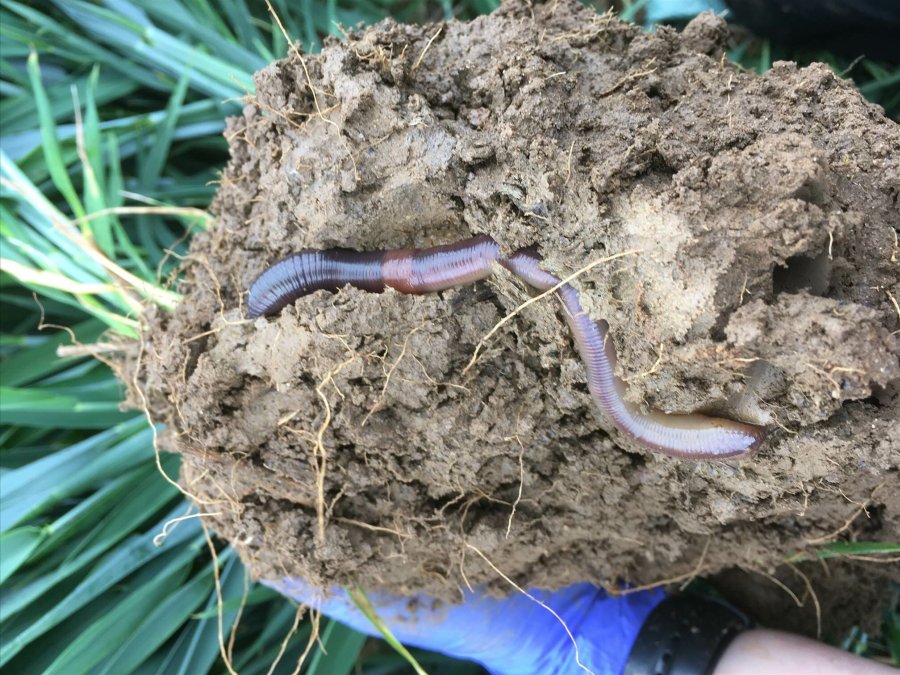
Farmers are researching whether sustainable soil management practices can boost deeper rooting earthworm populations to improve soil health and crop yields.
A group of farmers have teamed up with researchers to test how different levels of cultivation and organic matter impact populations of these vital soil invertebrates.
With support from the Innovative Farmers programme, they will dig soil pits in different treatment areas as part of the on-farm research.
The farmers will count and observe the burrows, which will provide an indication of how many deeper burrowing worms are present in the soil.
Triallist Rory Lay at Park Farm, Shropshire, runs a mixed farming system with beef, lamb and arable crops. He said soil was at the 'front of everyone’s mind'.
"I want to quantify the effects that bringing more farmyard manure and broiler litter onto the farm has on earthworms – and on crop yields," he said.
"We’re trying to build organic matter and support soil health by not disturbing the soil, which we hope will help both the environment and our business."
It is hoped the field lab may help farmers improve their yields without the need for chemical inputs, as research has shown deeper rooting earthworms can provide multiple benefits to crops.
For example, they can aid water infiltration, help prevent waterlogging, and break up soil below the level that everyday machinery can access, which allows crop roots to take hold and access previously unavailable nutrients and moisture.
Limited rooting depth is thought to be a major limitation to cereal crop yields as many crops have shallow roots that cannot fully access water below 40cm depth.
Additionally, cereal and oilseed roots struggle to penetrate strong soils, so need cracks, fissures and channels to reach greater depths – which can be created by deep burrowing earthworms.
Current numbers of deeper burrowing earthworms in many arable soils are suspected to be below historic levels, which is thought to be due to intensive cultivation and use of artificial fertilisers.
Other factors may include lower applications of organic matter and a reduction in crop rotations including extensive grazing livestock, which have traditionally added organic matter to soil.
The farmers leading the trial hope to add to previous research on earthworms and plug the data gap on the impacts of organic matter and cultivations on earth worm numbers and rooting depth.
Kate Pressland, Innovative Farmers programme manager, said encouraging deeper rooted crops is 'vital' for farmers to make their farms 'resilient to drought'.
"By testing how sustainable soil management techniques can affect deeper rooting earthworm populations in arable systems the group are hoping to learn more about how to promote healthy crops and soils and improve yields.
"This field lab is a good example of how biological systems could help farmers use less inputs by essentially doing the work for them," she said.
The results from the field lab will be available in November 2020.
